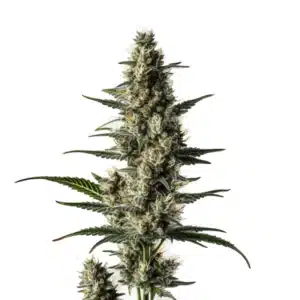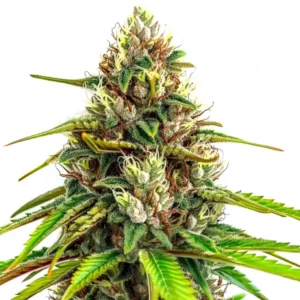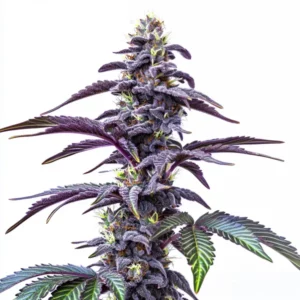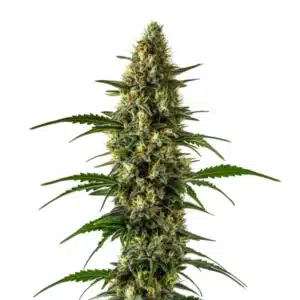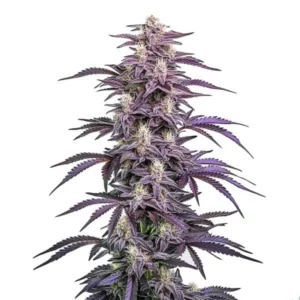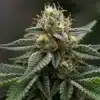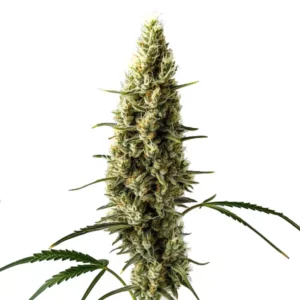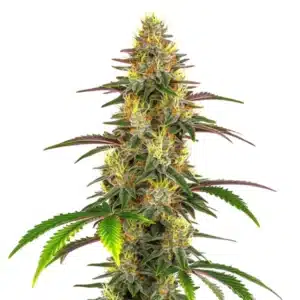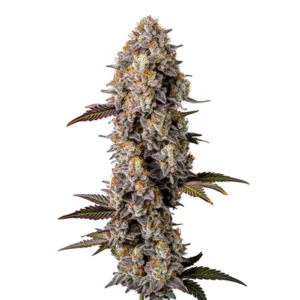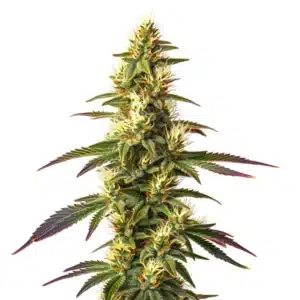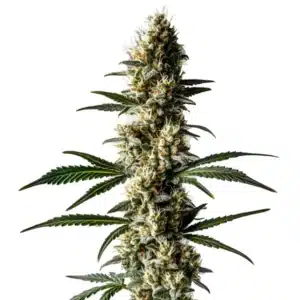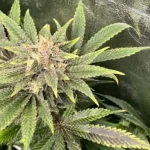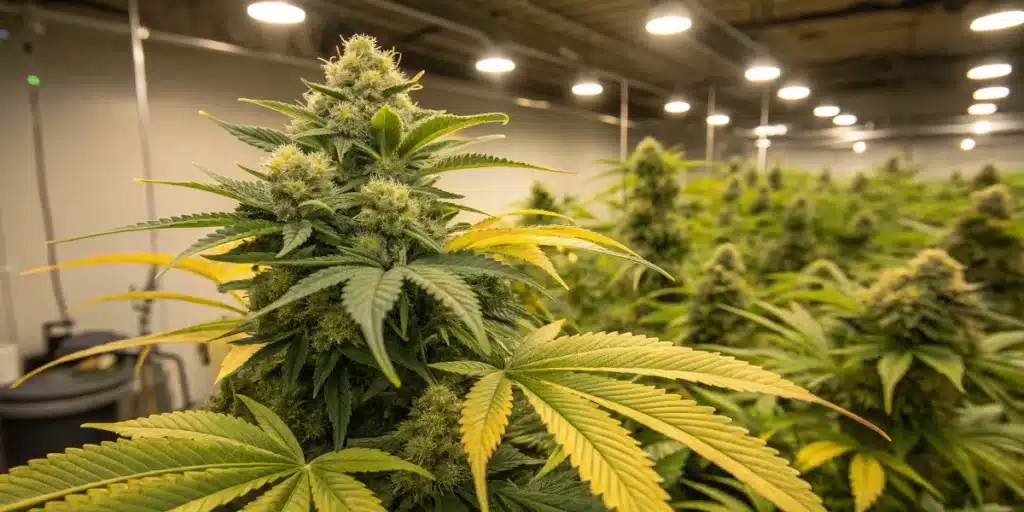
How to Grow Lemon Autoflower Strain
Lemon Autoflower Strain Description
Lemon Auto is known for its bright, citrus-infused aroma and invigorating taste. This strain offers a high-THC experience (17% – 25%) while keeping CBD levels very low (around 0.02%). Lemon Autoflower Strain makeup comes from a cross between Lowryder #2 and Lemon Skunk, resulting in an autoflower variety that is mostly sativa (roughly 60% Sativa, 40% Indica). This means you get a happy, energetic high that sparks creativity and leaves you feeling uplifted, yet with a gentle body relaxation that suits a busy day.
The terpene profile features notes of citrus, earth, pine, and a hint of skunk, thanks to compounds such as Alpha Cedrene, Alpha-Pinene, Beta-Caryophyllene, Myrcene, and Ocimene, among others. These terpenes work together to give Lemon Autoflower Strain its distinct flavor and aroma, making it a refreshing choice for cannabis enthusiasts. Whether you’re new to how to grow cannabis from seed or a seasoned cultivator, this strain’s forgiving nature and medium yield approximately 1.15 to 1.32 oz/ft² (350-400 gr/m²) or 2 to 3 oz per plant (80-100 gr/plant) make it a popular option for those seeking both quality and ease of growth.
Recommended Strains
Lemon Auto
|
|
THC | 17% - 25% (Medium) |
|
|
Type | Autoflowering |
|
|
Yield | Low |
|
|
Phenotype | 40% Indica / 60% Sativa |
24k Gold Autoflower
|
|
THC | 18% - 24% (Medium) |
|
|
Type | Autoflowering |
|
|
Yield | Medium |
|
|
Phenotype | 40% Indica / 60% Sativa |
Promos & Deals
Environmental Requirements for Growing Lemon Autoflower Strain
Lemon Autoflower Strain thrives when provided with steady conditions. For indoor cultivation, keep daytime temperatures between 70°F and 80°F (21°C-27°C) and slightly cooler temperatures at night. During the vegetative stage, aim for humidity levels of 60%-70%; then reduce humidity to 40%-50% during flowering to avoid mold and to encourage resin formation.
When growing outdoors, choose a location that receives full sun and has well-draining, nutrient-rich soil. Adding organic compost or worm castings can boost soil fertility, ensuring your plants receive all the nutrients they need. Consistent airflow, combined with protective windbreaks, will help prevent stress from harsh weather. These steps not only improve overall plant health but also enhance the quality of the final yield.
Setting Up Your Grow Space
Indoor Cannabis Cultivation
Set up a dedicated indoor space like a grow tent or small room. Cover the walls with reflective material such as Mylar to evenly distribute light. Install oscillating fans and an exhaust system with a carbon filter to control heat and odors. Start your Lemon Autoflower Strain in small pots using high-quality soil with a pH maintained between 6.0 and 6.5. As the plant grows, transplant it into larger containers to allow for healthy root expansion.
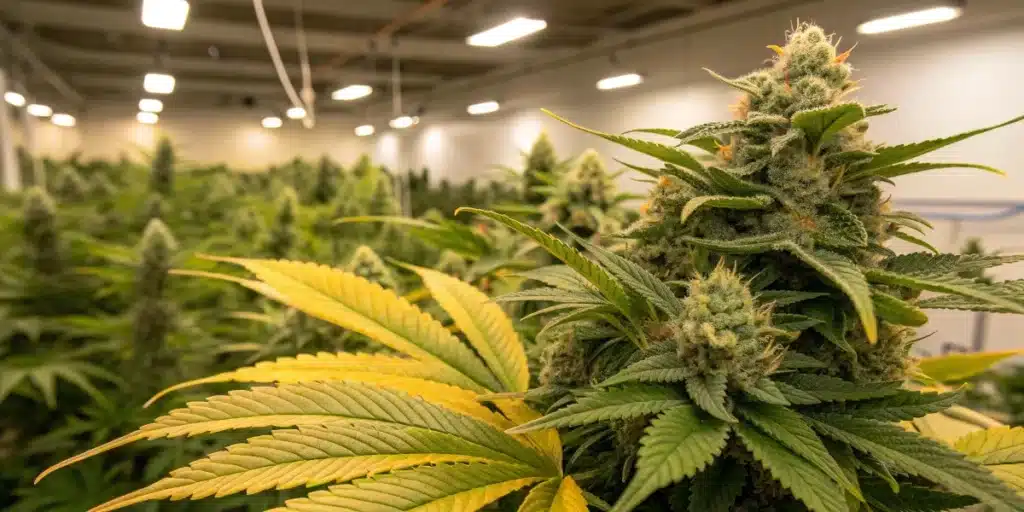
Outdoor Cannabis Cultivation
For outdoor cultivation, prepare your site by enriching the soil with organic matter. Choose a sunny spot and consider raised beds or large containers to enhance drainage. Use basic windbreaks to protect your plants from strong gusts. Regularly water and remove competing weeds to maintain a clean, fertile environment that encourages vigorous growth.
Propagation and Germination of Lemon Autoflower Strain
Begin your journey with premium feminized seeds from a trusted source. Soak the seeds in distilled water or place them on a damp paper towel for 24-48 hours. This softens the seed coat and helps trigger the taproot. Once a small taproot appears, plant the seed in a container filled with light, well-draining soil.
Keep the temperature steady between 75°F and 80°F (24°C-27°C) and maintain humidity at around 60%-70% until the seedlings develop their first true leaves. As you learn how to grow cannabis from seed, gradually increase light intensity to help the young plants acclimate. These early steps are vital for establishing a strong foundation for healthy growth.
Vegetative Phase of Lemon Autoflower Strain
During the vegetative phase, Lemon Autoflower Strain grows rapidly. Provide 18-20 hours of light per day to promote strong leaf and stem development. Use a nitrogen-rich fertilizer to boost vegetative growth, and consider active training methods such as low-stress training (LST) or topping. These techniques encourage an even canopy and improve light penetration throughout the plant.
Keep an eye on temperature, humidity, and watering practices. Consistent care during this phase will prepare your plants for a smooth transition to the flowering stage and set the stage for a higher yield.
Flowering Phase of Lemon Autoflower Strain
When it’s time to flower, switch your light cycle to 12 hours on and 12 hours off. During the flowering phase, the plant focuses on producing thick, resinous buds that capture its unique citrus and piney flavor. Feed the plants with fertilizers high in phosphorus and potassium to support bud formation. Maintain cooler temperatures (65°F-75°F) and reduce humidity to 40%-50% to prevent mold and enhance resin production.
If the branches become heavy, provide support with stakes or trellises. Regularly check the trichomes with a magnifier when most trichomes turn milky with some amber, your Lemon Autoflower Strain is ready to harvest. This active and attentive approach during flowering is crucial for securing a high-quality, flavorful yield.
Cannabis Fertilization and Nutrition for Lemon Autoflower Strain
Proper nutrition is key to a successful harvest. During the vegetative phase, feed your plants with a nitrogen-rich fertilizer to build strong foliage. As they enter flowering, switch to a blend that is high in phosphorus and potassium, which supports bud growth and overall potency. Keep the pH of your growing medium stable between 6.0 and 6.5 to ensure optimum nutrient uptake.
Many growers supplement with organic additives such as compost or worm castings to further enrich the soil. Regular monitoring of water levels and nutrient doses will help you avoid overfeeding or underwatering, ensuring that your Lemon Autoflower Strain stays vigorous and productive.
Pest and Disease Control for Lemon Autoflower Strain
Maintain a clean growing area and inspect your plants daily for pests like spider mites, aphids, or thrips. If you notice any pests, treat them promptly with organic options such as neem oil. Good airflow and regular removal of dead leaves help prevent the spread of fungal diseases. Should you spot any signs of mold or mildew, remove the affected parts immediately and adjust humidity levels to protect your crop.
Harvesting and Curing for Lemon Autoflower Strain
When most trichomes on your Lemon Autoflower Strain turn milky with some amber, it is time to harvest. Use clean, sharp tools to carefully cut the branches. Dry the buds in a dark, well-ventilated area where temperatures range between 60°F and 70°F. Ensure that the buds have enough space for proper air circulation during the drying process.
After drying, cure the buds in airtight glass jars. Open the jars daily during the first week to allow excess moisture to escape, then let the buds cure for 2-4 weeks. This curing process refines the flavor and potency of the strain, preserving its unique citrus, earthy, and piney notes.
Is Lemon Autoflower Strain Indica or Sativa?
Lemon Autoflower Strain is mostly sativa, with an approximate genetic makeup of 40% Indica and 60% Sativa. This balance provides a clear, energetic high combined with a gentle body relaxation. The result is a happy, uplifting experience that fuels creativity and energy, making it ideal for daytime use.
Advantages and Disadvantages of Growing Lemon Autoflower Strain
Advantages: Lemon Autoflower Strain offers a refreshing citrus flavor with hints of earth and pine. Its moderate THC levels (17%-25%) and fast flowering time (8-10 weeks) make it a great choice for beginners. The medium yields and forgiving nature of this autoflower make it reliable and easy to manage, even for those new to cannabis cultivation.
Disadvantages: Its delicate flavor profile requires careful nutrient and environmental control. Extra branch support may be necessary during flowering, and yields tend to be moderate compared to other strains. Attention to detail is key to prevent nutrient burn and maintain the strain’s unique characteristics.
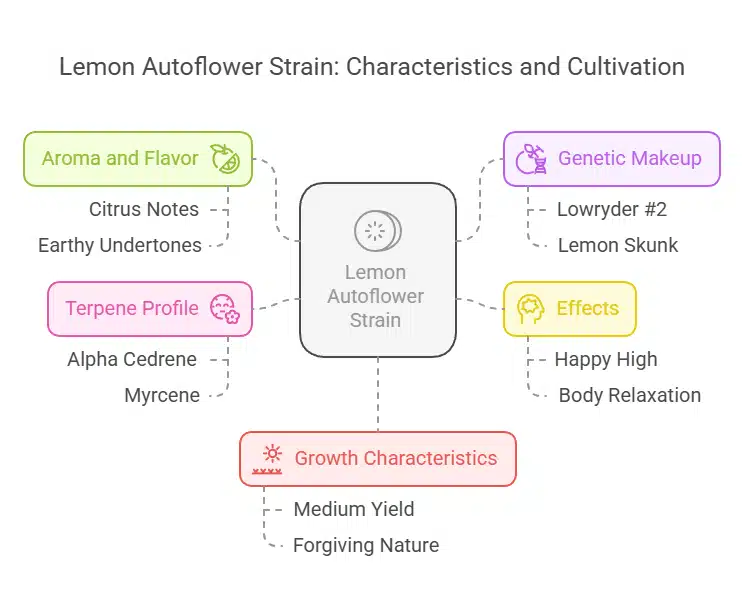
Why Buy Lemon Autoflower Strain
Choose Lemon Autoflower Strain if you want a unique, energizing cannabis experience with a burst of citrus flavor. Its balanced effects creative, euphoric, and uplifted make it suitable for both recreational and medicinal use, particularly for easing arthritis, depression, and fatigue. Trusted suppliers, such as those listed on Blimburnseeds.com, offer quality genetics to ensure a reliable and rewarding crop. Whether you are a beginner or an experienced grower, this strain provides a straightforward and enjoyable cultivation experience.
Common Growing Problems in Lemon Autoflower Strain
Common issues include nutrient imbalances, overwatering, and pest invasions. If nutrient levels are not closely monitored, plants may experience burn or stunted growth. Regularly inspect your crop for signs of pests and adjust your watering routine to avoid soggy roots. Quick, active management of these challenges is crucial to keeping your Lemon Autoflower Strain healthy and productive.
Similar Strains
Lemon Skunk
Lemon Skunk shares a similar citrus aroma and energetic high. Its genetics and flavor profile make it a natural complement to Lemon Autoflower Strain.
Tips for Professionals
For advanced cultivators, use timers, quality sensors, and organic supplements to optimize every stage of growth. Keeping detailed logs of light cycles, nutrient adjustments, and environmental conditions helps quickly identify and correct any issues. Combining modern technology with hands-on care ensures that Lemon Autoflower Strain consistently produces high yields and retains its unique flavor profile.
FAQs
What makes Lemon Autoflower Strain special?
Its bright citrus aroma, moderate THC levels, and fast flowering time offer an energetic, creative high combined with gentle body relaxation. These traits make it ideal for daytime use and for easing conditions like arthritis, depression, and fatigue.
How long does it take to flower?
The flowering phase lasts about 8-10 weeks, which is typical for autoflower strains and helps ensure a quick turnaround from seed to harvest.
Can I grow Lemon Autoflower Strain outdoors?
Yes, it thrives in sunny, well-draining soil with regular watering and proper wind protection. Outdoor growers should amend the soil with organic matter for optimal fertility.


